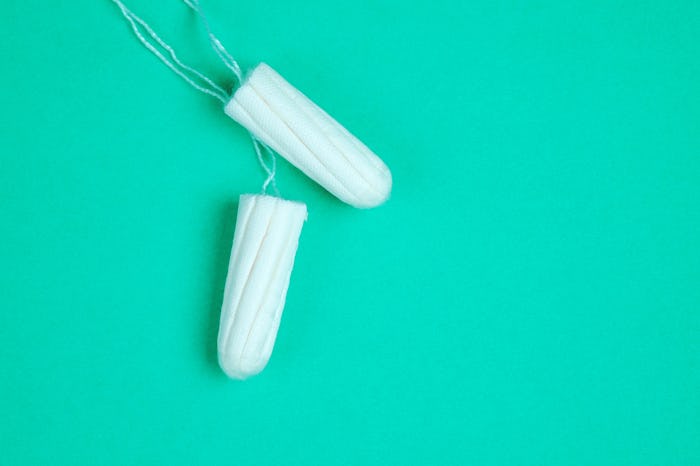Life

Here's Why Using Tampons Post-Pregnancy Is Painful AF
Having a baby changes so many aspects of your life, including the way you deal with your period. You know, that thing you didn't have to deal with for nine-plus months (#blessed). Your period can return soon after giving birth, and it may present some new challenges when it comes to your tampons. You may notice your go-to feminine hygiene product now causes pain, leading you to wonder why does it hurt to use tampons postpartum for so many women?
Most women need a break from tampons right after childbirth because, well, they just pushed a baby out of their vagina. But even after enough time has passed, you may find it still hurts. That's because, according to Baby Center, inserting a tampon could bring bacteria to the vulnerable area around the uterus. Luckily, the tampon hiatus does not last forever. After the six-week postpartum checkup, most women are welcome to use tampons again, according to the National Health Service. As long as the doctor determines everything is healing properly, it's time to reunite with your favorite tamps.
Returning to tampons is an adventure all its own, though. For many women, inserting a tampon after having a kid is painful. Because the hormone estrogen is often low following delivery, the vagina may be drier after childbirth, making tampon insertion painful, according to Health. For some women, tampons feel completely different (and wildly uncomfortable) after having a kid.
Understanding the reason behind this discomfort is one thing, but how can postpartum women deal with tampon pain? Gurl suggested you use the smallest tampon absorption size available and changing it frequently for maximum comfort. If dryness is the issue, then putting water-based lubricant on the tampon could make insertion less painful, as noted in All Things Vagina. Lastly, some women may opt for pads or a menstrual cup, if the tampons are just not going to happen. For the most part, it's just a matter of choice. But if any vaginal pain is severe or otherwise concerning, don't hesitate to discuss it with your doctor.